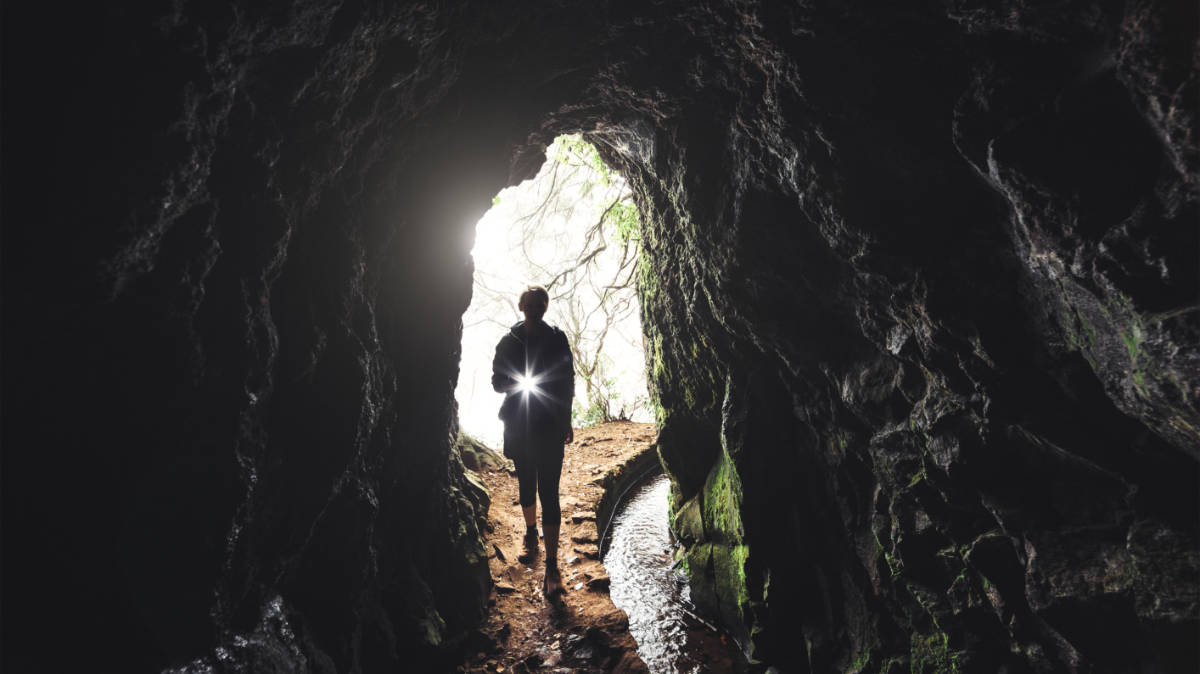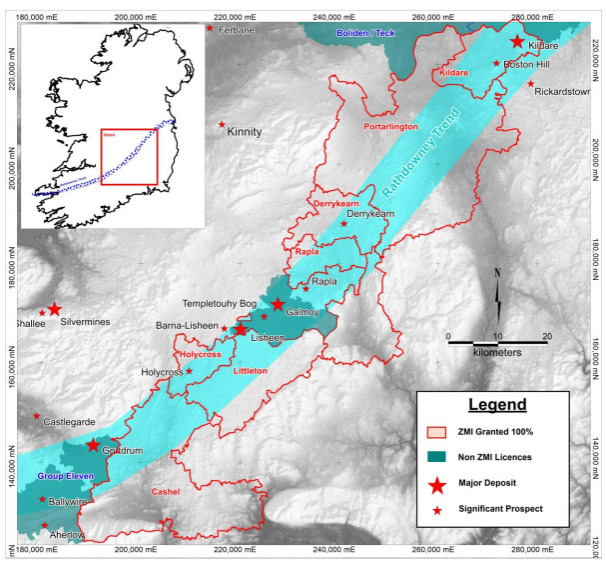Zinc of Ireland shines a new light on Kildare zinc project with elevated germanium hits up to 433g/t

With only sparsely reported germanium assaying along the Rathdowney Trend, this new understanding gives Zinc of Ireland confidence in future exploration work. Pic via Getty Images
- Portable pXRF data indicates the potential of significant concentrations of germanium within all four key mineralised zones
- Elevated germanium up to 433g/t has been highlighted in drillcore
- ZMI considers this encouraging given the abundance of historic high-grade zinc-lead intercepts that haven’t been assayed for germanium
Special Report: Preliminary pXRF data indicates the existing 11.3Mt zinc-lead resource at Kildare may host significant levels of germanium, another critical mineral used in high-tech applications under the weight of Chinese control over supply.
Zinc of Ireland (ASX:ZMI) owns the Kildare project, home to a 11.3Mt resource @ 9% zinc-lead, in south-west of Dublin and within the +40km Rathdowney Trend, well-known for its zinc prospectivity.
Until recently, the company’s focus at Kildare has been driven by its similarities to the high-grade, profitable zinc mines nearby including the 22.8Mt underground Lisheen mine and the 9.7Mt underground Galmoy mine.

Preliminary results obtained from pXRF analyses have highlighted the potential for Kildare to host significant quantities of germanium, a critical mineral used in semi-conductor chips which are essentially the building blocks for the technology used in IT, smartphones, EVs and military applications.
Heaps of drill core previously untested for germanium
ZMI says it’s encouraged by findings from a recent Energy Critical Element Study carried out by Kildare-based geological consultancy BRG, following pXRF analyses on 906 samples collected at 1m intervals from areas of previously identified zinc-lead mineralisation.
The samples were taken from selected historic core within or adjacent to the Kildare resource block model and returned:
- 14m with a maximum grade of 433 g/t from 461.9m;
- 10m with a maximum grade of 359 g/t from 477m; and
- 12m with a maximum grade of 428 g/t from 369m.
Prior to this commissioned test work, ZMI says none of the 50,000m of drill core from Kildare has been assayed for germanium.
The company is pleased with the results, given the abundance of historic high-grade zinc-lead intersections that haven’t been assayed for the critical mineral.
Opens the path to new markets and partnerships
While ZMI’s understanding of the overall germanium content within the Kildare zinc-lead deposit remains at an early-stage the pXRF data potentially opens the company up to new markets, strategic partnerships and funding.
“To date, there has been only sparsely reported germanium assaying along the Rathdowney Trend,” ZMI non-executive chairman Peter Huljich says.
“This new understanding of the potential relationship between zinc and germanium at Kildare gives us a high degree of confidence in our future work, which will include selected resampling and conventional sample analyses of existing drill core.
“This comes at a time when China, who controls more than 60% of world’s germanium supply, has banned exports of the metal.
“We are excited to use our existing data and drill core to expedite quantifying the germanium extent at potentially one of Europe’s largest undeveloped deposits.”
What else is happening?
Drilling is set to kick off at the company’s Cascade rare earths project near Esperance imminently, with other investment opportunities in the critical metals sector being actively pursued.
This article was developed in collaboration with Zinc of Ireland, a Stockhead advertiser at the time of publishing.
This article does not constitute financial product advice. You should consider obtaining independent advice before making any financial decisions.
Related Topics
UNLOCK INSIGHTS
Discover the untold stories of emerging ASX stocks.
Daily news and expert analysis, it's free to subscribe.
By proceeding, you confirm you understand that we handle personal information in accordance with our Privacy Policy.








